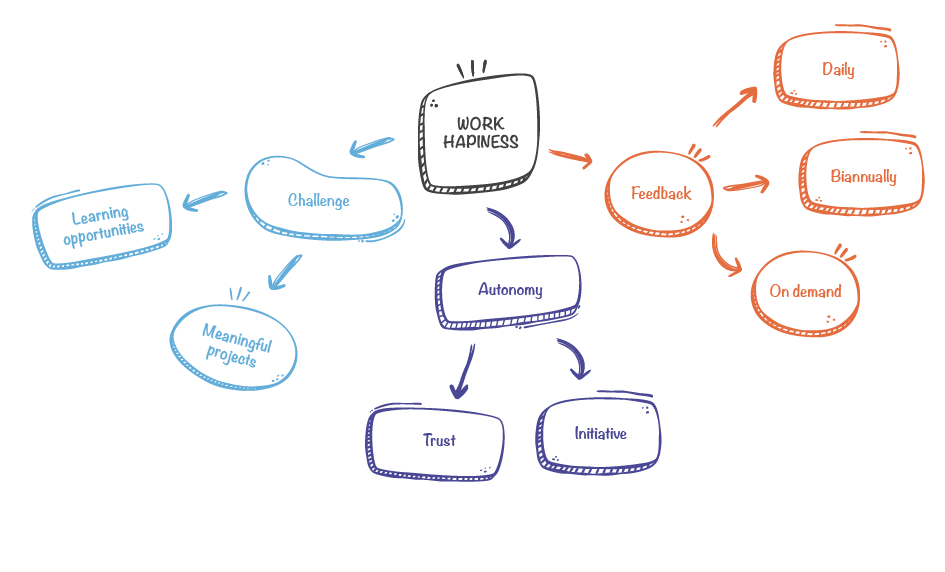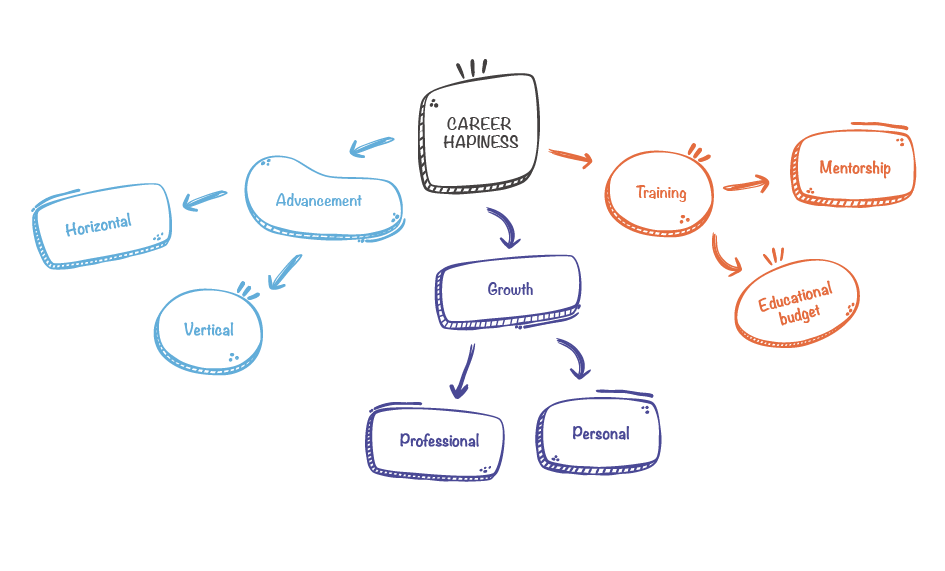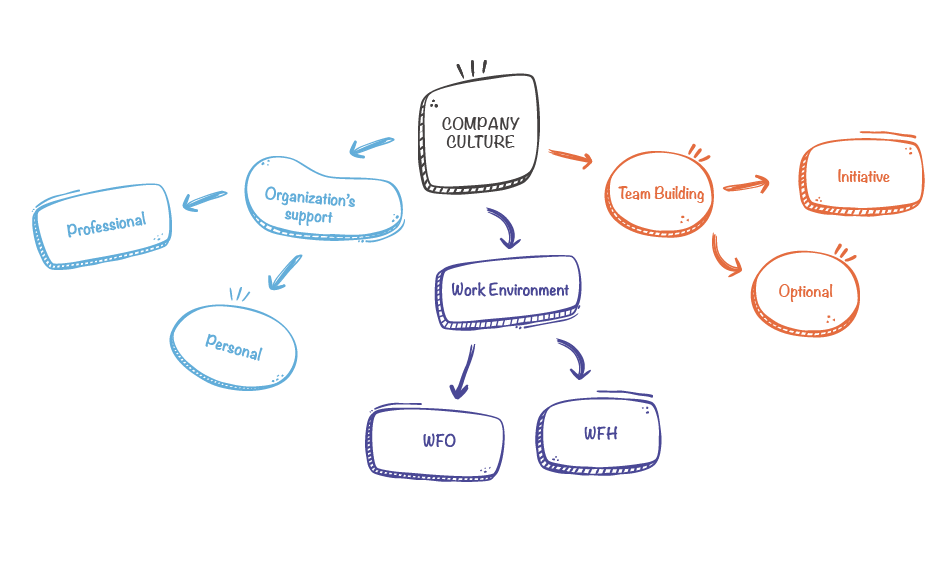The importance of Work Happiness, Career Happiness, and Company Culture

The job market has exploded, and software engineers are in high demand, receiving job offers left and right. Choosing the best job offer is quite a challenge since the offers are quite competitive. Most of them focus on an increase in salary, followed by an equally remarkable benefits package.
So, how do you pick the right job offer?
We often start and finish all job offer considerations with the salary, but there’s so much more on the table. Companies are offering a variety of benefits and values in return for the skills, capabilities, and experiences employees bring to the organization. We’re going to break it down to the most common ones you might want to consider when making a final decision.
Work Happiness

It goes without saying that we trade our skills, expertise, and time for money, but we need to make this grind more meaningful by doing something we’re interested in or just love doing. For many work happiness is a prerequisite when it comes to choosing the best job offer.
We need challenges and some room for growth. This comes through working on impactful projects and having learning opportunities. We need to get regular feedback from our team and a manager on how well we’re doing. Are we meeting expectations? This is a matter of integrity, after all. And who doesn’t like being praised and thanked for delivering? We appreciate the recognition for what we’re capable of doing, the quality of our work, and our expertise. This is only possible if we have the autonomy in our work, the trust of our team members and superiors that we’ll do things well and in a timely manner. Then we can own the thankyous and welldones.
Career Happiness

Workplaces where we can advance in our careers and climb the ladder mean a lot to us. Not only do we get to take on more responsibilities if we wish to, but we get to learn more, which is a part of our professional growth. For many in the IT industry, this kind of development is not as attractive as learning new technologies and changing stacks. This kind of horizontal movement within the company often prevents looking for new knowledge and challenges elsewhere. Well-devised mentorship programs and the budget for completing courses and attending professional conferences add to the value the company is providing, actively contributing to our career happiness.
Company Culture

Many companies mirror job offers to stay competitive. Deciding where to settle comes down to personal preference and “liking” the people and the company culture.
Company culture refers to attitudes and behaviors, and it is evident in the way people interact with each other, the values they hold, and the decisions they make. It includes a variety of elements, from the work environment, leadership style, values, ethics, expectations to mission, vision, and goals.
Getting a glimpse of it can tip the scale if we feel the culture resonates with our own professional and personal values and beliefs. Knowing a person that works in said companies can bring valuable insight. We can learn about the employee environment and imagine what working there would be like. To be honest, no one wants to make the leap and jump companies only to find themselves in a toxic work environment no remuneration package can cover for.
There are many things to consider when choosing the best job offer, and we hope the graphs we prepared for you might help generate questions you can and should ask your prospective employers. We’ll discuss benefits and compensation in another blog.
Written by Jelena Umicevic Bogunovic